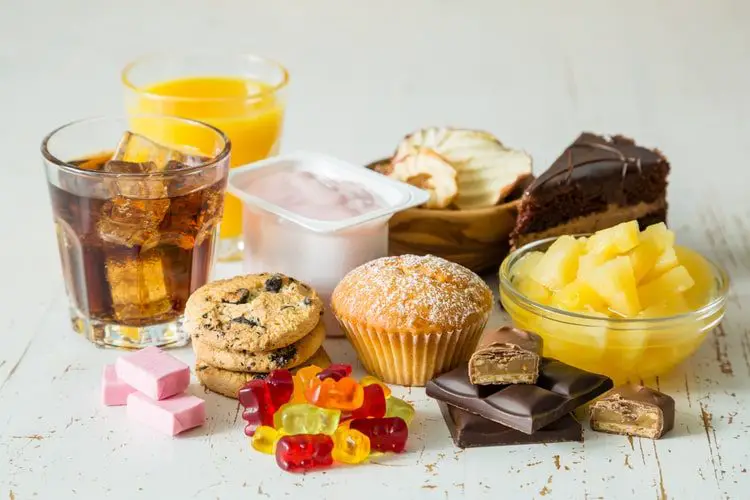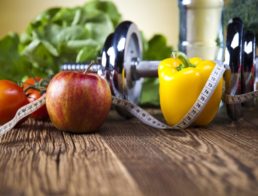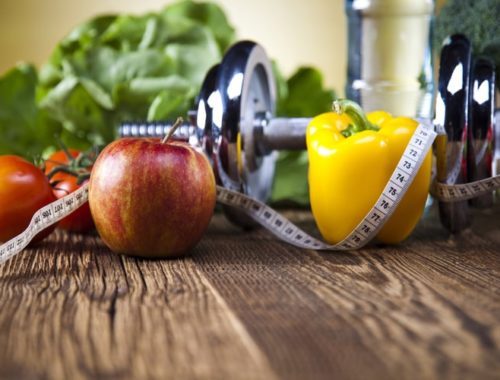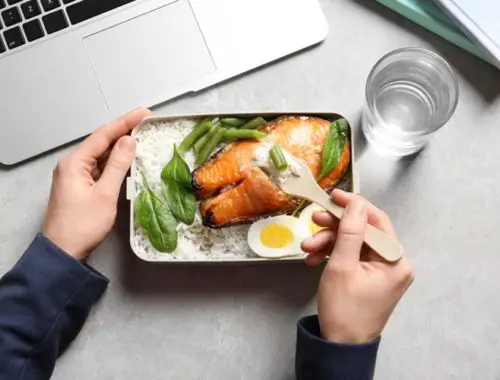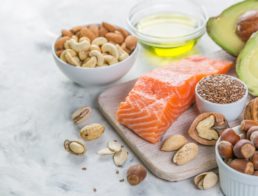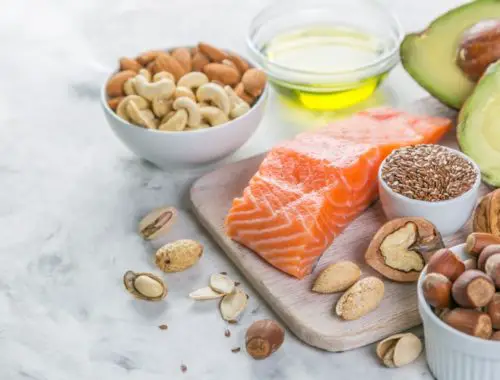If you look on the Internet or talk to your friends, you may find that “sugar” is a trigger word in health and weight loss conversations. Sugar-free diets are all the rage on social media, around the water cooler and on television. Even doctors have written best-selling books on living sugar-free, so it’s not surprising that many people think sugar should be eliminated from the diet. As a registered dietitian, I see that there is both good and bad that comes from a sugar-phobic society.
In this article, we will discuss the truth about sugar, how much you should have per day and what foods contain sugar. Also, if you are trying to wean off sugar or reduce the amount of sugar you eat, I have a list of great tips to try.
Is sugar bad?
As a dietitian, I look at “sugar” as a wide umbrella term. There are different types of sugar that are found in foods. These different types of sugars have different recommendations:
- Natural sugars: There are sugars that are found naturally in foods like fruits, vegetables, grains and dairy products (i.e. milk, yogurt and cheese). Natural sugars are found in many healthy foods and give us energy. Foods with natural sugars tend to have valuable nutrition and should be included in a healthy diet.
- Added sugars: Added sugars are sugars that have been added to foods during manufacturing. Added sugars are the sugars to watch out for. They are found in flavorings, sugar-sweetened beverages, snack foods, cakes, cookies, candies, juice drinks, boxed food and so many other food products. If you look on the Nutrition Facts label of a product, most of the time you will find both “sugar” and “added sugar” listed.
So, when we boil it down, sugar is found in many foods, some naturally-occurring and some added (and some have both). Sugars that occur naturally in healthy foods like fruit, vegetables, whole grains, milk, yogurt and cheese should be staples in a healthy diet because these foods have lots of nutrition. Sugars that are added to food can be enjoyed, but should be limited day to day.
How much sugar should I eat per day?
The real question is: How much added sugar should be consumed per day? Recent food labeling requirements have changed to help consumers better navigate their food choices. One recent change was the addition of “added sugars” on the Nutrition Facts label. If you look on the label, you may see a section for “sugar” and then “added sugar” underneath.
“Sugar” is the amount of sugar that is in that food by default (often seen in fruits, milk and yogurt), and “added sugar” is the sugar that was added into that product. Try to limit added sugar to less than 10% of your daily calorie intake. So, if you consume about 2000 calories per day, try to limit foods with added sugars to 200 calories per day.
How to Eat Less Added Sugar
Regardless of your weight and/or health goals, all Americans should try to control their added sugar intake for better health. Here are several tips to try if you want to eat less added sugar:
Tip #1: Eat fresh or plain frozen fruit (instead of dried/canned fruit)
Choose fresh and plain frozen fruit (frozen fruit without added syrups or flavorings). These choices give you fiber and a high water content while still giving you sweetness. Dried and canned fruit can have sugar added during processing.
Tip #2: Swap your desserts with fresh or plain frozen fruit
Make fruit your dessert! Have a healthy but sweet piece of fruit after your meal.
Tip #3: Choose whole fruit instead of fruit juice
Fruit juice drinks often contain many different juices, concentrates and other additives, including added sugar. If you have no fresh fruit available, note that 4 ounces of 100% fruit juice is still considered a “serving of fruit.” However, in general, drinking our calories tends to be less satisfying than eating our calories.
Tip #4: Drink sparkling water instead of soda
If you’re like me and love carbonation, then drink sparkling water instead of soda. There are many commercial sparkling water products, however, I prefer to make sparkling water at home with my SodaStream (buy one here). You can also buy flavored sparkling water or you can add flavor yourself with fruit, lemon juice or lime juice.
Tip #5: Drink diet soda
Diet sodas can be a good option for someone who is trying to reduce their sugar intake from regular soda. While diet sodas don’t contain added sugars like regular soda, they do have artificial sweeteners. For the general public, artificial sweeteners are safe to consume, but there are some health conditions (i.e. phenylketonuria [PKU] and irritable bowel syndrome [IBS]) that need to avoid certain sweeteners.
Diet sodas are also low-calorie. However, while diet sodas are low-calorie and have little to no added sugars, they still lack nutritive value.
Tip #6: Add flavor to your water
You may grab sugary foods and drinks because you want something flavorful. If you find yourself craving something flavorful during the day, then add some flavor to your water to keep you hydrated and your taste buds engaged. That may be just what you need to keep you satisfied until your next meal. Add fresh fruit, frozen fruit, citrus juices or even a little fruit juice to your water. In my home, I keep big bottles of lemon juice concentrate in the fridge and then add a splash to my water, sparkling water or hot water. Here is my favorite lemon juice concentrate.
Tip #7: Drink soda water in place of tonic water in cocktails
Tonic water has tons of sugar, so switch to soda water for a similar alcoholic drink with less sugar. Try this premium soda water with your next cocktail!
Tip #8: Have some sugar
Say what?! I love chocolate, and I know that if I didn’t have a little chocolate each and every day, I wouldn’t be happy. If you have a sweet tooth, consider allowing yourself to have your favorite sugar-containing food or drink, but set some boundaries. For example: If you currently drink 3 regular sodas per day, try cutting down to 1 soda per day. Doing this will cut back on sugar, but you are still enjoying your drink.
Some people may be able to limit themselves to sweets 1-2 times per week. Setting personal limits on sweets is highly dependent on your behaviors. Finding a balance between controlling your added sugar intake while still enjoying your diet is key!
